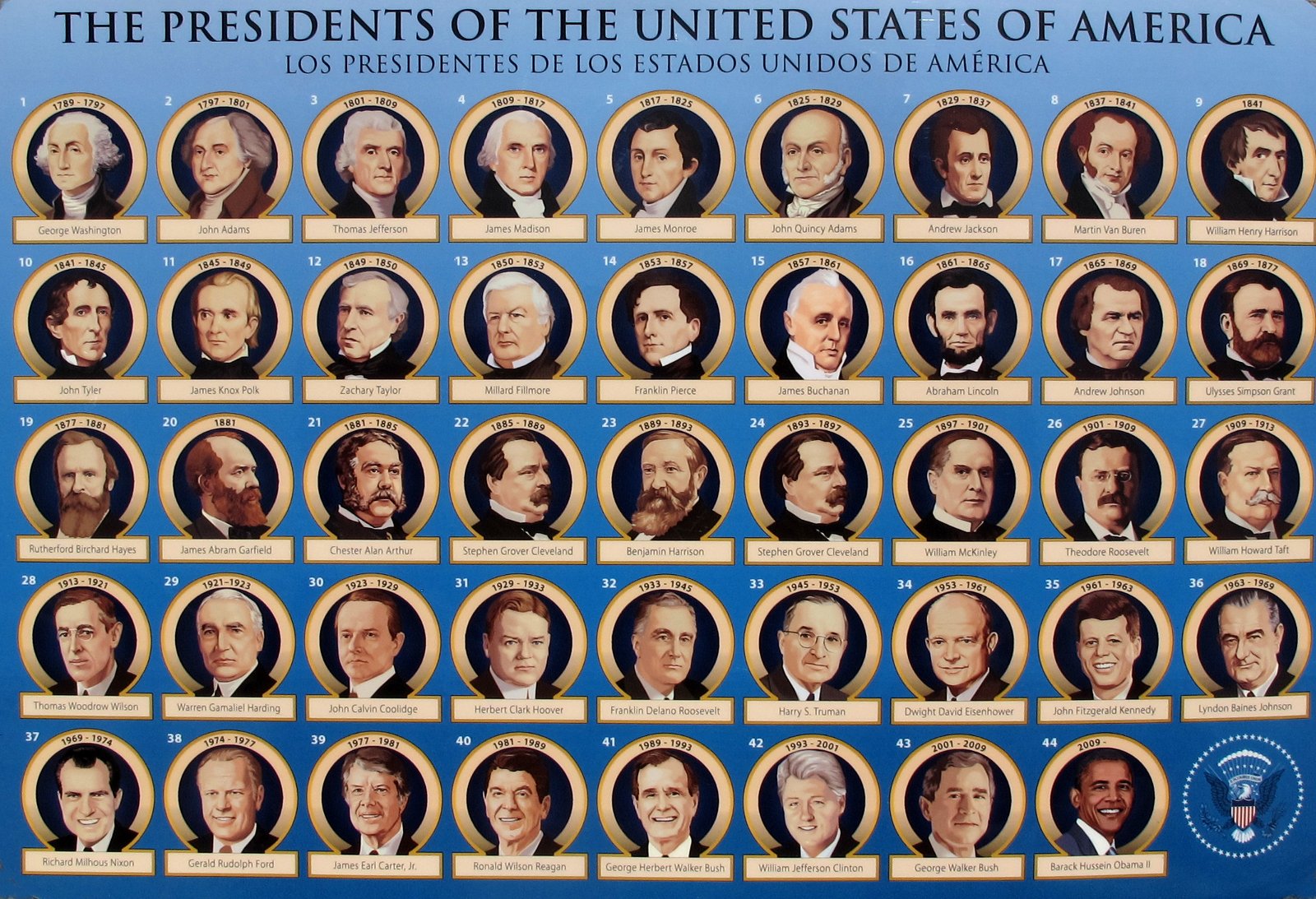The Presidents of the United States have played pivotal roles in shaping the nation's history. Understanding the chronological order of these leaders provides valuable insight into the political landscape and significant events that have influenced the nation. This article delves into the list of U.S. Presidents, their contributions, and the eras they governed.
The U.S. Presidents have varied in their policies, leadership styles, and the historical contexts in which they served. Each presidency has left a unique mark on the country, whether through groundbreaking legislation, foreign policy decisions, or pivotal moments in American history. By examining the presidents in chronological order, readers can appreciate how the office has evolved and how each leader has responded to the challenges of their time.
This comprehensive guide will explore the presidents from George Washington to Joe Biden, providing a brief overview of their terms, significant accomplishments, and challenges faced during their presidencies. Through this exploration, we aim to enhance your understanding of American leadership and governance.
Table of Contents
- 1. George Washington (1789-1797)
- 2. John Adams (1797-1801)
- 3. Thomas Jefferson (1801-1809)
- 4. James Madison (1809-1817)
- 5. James Monroe (1817-1825)
- 6. John Quincy Adams (1825-1829)
- 7. Andrew Jackson (1829-1837)
- 8. Martin Van Buren (1837-1841)
- 9. William Henry Harrison (1841)
- 10. John Tyler (1841-1845)
- 11. James K. Polk (1845-1849)
- 12. Zachary Taylor (1849-1850)
- 13. Millard Fillmore (1850-1853)
- 14. Franklin Pierce (1853-1857)
- 15. James Buchanan (1857-1861)
- 16. Abraham Lincoln (1861-1865)
- 17. Andrew Johnson (1865-1869)
- 18. Ulysses S. Grant (1869-1877)
- 19. Rutherford B. Hayes (1877-1881)
- 20. James A. Garfield (1881)
- 21. Chester A. Arthur (1881-1885)
- 22. Grover Cleveland (1885-1889)
- 23. Benjamin Harrison (1889-1893)
- 24. Grover Cleveland (1893-1897)
- 25. William McKinley (1897-1901)
- 26. Theodore Roosevelt (1901-1909)
- 27. William Howard Taft (1909-1913)
- 28. Woodrow Wilson (1913-1921)
- 29. Warren G. Harding (1921-1923)
- 30. Calvin Coolidge (1923-1929)
- 31. Herbert Hoover (1929-1933)
- 32. Franklin D. Roosevelt (1933-1945)
- 33. Harry S. Truman (1945-1953)
- 34. Dwight D. Eisenhower (1953-1961)
- 35. John F. Kennedy (1961-1963)
- 36. Lyndon B. Johnson (1963-1969)
- 37. Richard Nixon (1969-1974)
- 38. Gerald Ford (1974-1977)
- 39. Jimmy Carter (1977-1981)
- 40. Ronald Reagan (1981-1989)
- 41. George H.W. Bush (1989-1993)
- 42. Bill Clinton (1993-2001)
- 43. George W. Bush (2001-2009)
- 44. Barack Obama (2009-2017)
- 45. Donald Trump (2017-2021)
- 46. Joe Biden (2021-Present)
1. George Washington (1789-1797)
George Washington, the first President of the United States, set many precedents for the office. He is known for leading the American Revolutionary War and presiding over the Constitutional Convention.
Significant Contributions:
- Established the Cabinet system.
- Neutrality in foreign conflicts.
- Farewell Address warned against political parties.
2. John Adams (1797-1801)
John Adams, a founding father and a leading advocate for independence, served as the second President. His presidency included the Quasi-War with France.
Key Achievements:
- Signed the Alien and Sedition Acts.
- Maintained peace with France.
3. Thomas Jefferson (1801-1809)
Thomas Jefferson, the principal author of the Declaration of Independence, served as the third President. His presidency is marked by the Louisiana Purchase.
Notable Events:
- Louisiana Purchase doubled the size of the U.S.
- Lewis and Clark Expedition.
4. James Madison (1809-1817)
James Madison, known as the "Father of the Constitution," served as the fourth President. His presidency included the War of 1812.
Major Highlights:
- War of 1812 against Britain.
- First President to ask Congress for a declaration of war.
5. James Monroe (1817-1825)
James Monroe, the fifth President, is best known for the Monroe Doctrine, which opposed European colonialism in the Americas.
Impactful Policies:
- Monroe Doctrine established U.S. foreign policy.
- Era of Good Feelings marked by national unity.
6. John Quincy Adams (1825-1829)
John Quincy Adams, the sixth President and son of John Adams, faced significant opposition during his presidency, particularly regarding his policies on infrastructure.
Key Focus Areas:
- Promoted scientific advancements.
- Supported internal improvements.
7. Andrew Jackson (1829-1837)
Andrew Jackson, the seventh President, is known for his populist approach and for founding the Democratic Party. His presidency is also marked by the Indian Removal Act.




